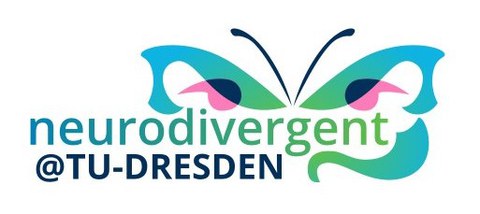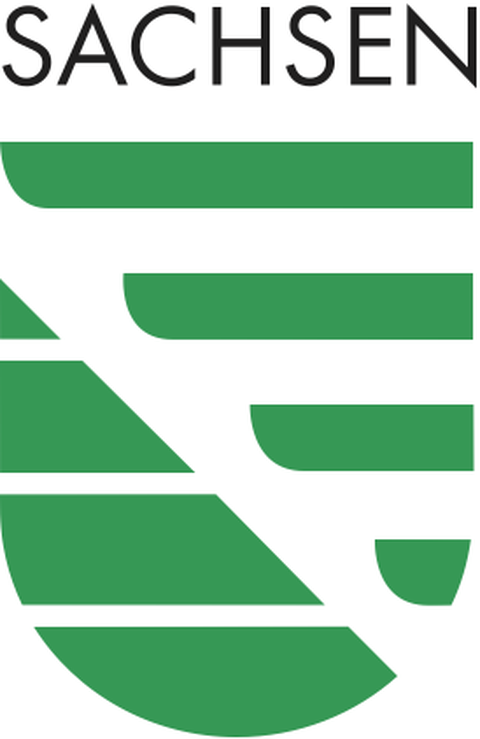Neurodivergent@TU Dresden
In 2023, the TU Dresden again received a special funding for inclusion from the SMWK for projects to improve the participation of students and employees with disabilities and chronic illnesses at the TU Dresden. Within this scope, the AutARK team submitted an proposal for the project "Neurodivergent@TU Dresden". This proposal was able to impress the selection committee and was consequently approved, so that the project can now be carried out from September to December 2023 with two positions at TU Dresden, in line with the AutARK project goals.
The aim of the project is to improve inclusion and accessibility for neurodivergent students from the perspective of those affected at TU Dresden. The research will focus in particular on the area of autism spectrum disorders (ASD) and attention deficit hyperactivity disorder (ADHD) in order to establish strategies that can sustainably improve academic success, quality of life and participation for neurodivergent people.
Our understanding of neurodiversity
The term neurodiversity describes that differences in neurological development are part of the natural human spectrum, with barriers more likely to be created by society. That people think and feel diversely; that they can perceive and explore the world from unusual perspectives, on the other hand, is a great enrichment. Many neurodivergent people are hindered in their everyday lives by a neuronormative society, so that barriers also arise in their studies.
ADHD and ASD are two diagnoses that categorize common complaints of neurodivergent people and thus make them researchable. Therefore, we focus our work on these two disorders, knowing that not all affected people get access to diagnoses, even if they experience suffering.
We take into account existing biases in research and diagnosis in order to be able to improve the situation of as many neurodivergent people as possible.
Project goals and content
neurodivergent students@TUD - an analysis
Within the framework of the project, the current situation at the TU Dresden will first be analyzed by investigating a study that will provide an overview of the situation of neurodivergent students. Both, scientific principles and personal experience reports, will be included in the analysis. The qualitative and quantitative analysis comprises three parts:
- We will investigate interviews with neurodivergent students in order to get information about their experiences of academic life and quality of life, with a focus on structural barriers and developed strategies for self-support.
- We qualitatively examine how needs of neurodivergent people are formally and practically taken into account in teaching at three selected faculties.
- The results from interviews and investigation are classified quantitatively with an online survey.
neurodivergent networking@TUD - self-support and community work
Our project also establishes sustainable social structures in which neurodivergent students can support each other and connect with each other. The aim is to enable neurodivergent people to help each other. With initial support from our project, they can thus benefit from each other's experiences and applied methods, which can lead to a sustainable improvement in academic success and quality of life.
Team Members
Lars Bönsch, B. Sc. and Jessica Cistakova as well as the project team of the research project AutARK.
Contact
If you have any questions, comments or general interest in the project, please contact us by mail at:
This measure is financed by tax funds on the basis of the budget passed by the members of the Saxon State Parliament.


